Wolfgang Dittrich – the rabbit
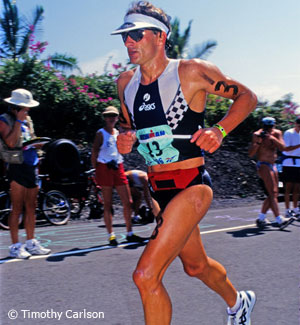
In the late 80's and early 90's, Wolfgang Dittrich made his living as the ferocious rabbit Mark Allen and Dave Scott were forced to chase down in the marathon portion of Ironman Hawaii each year. Today the former long-haired swim star from Western Germany can be found traveling between 5 different swimming pools in the Colorado foothill communities Boulder and Broomfield coaching kid programs along with Master swim groups. Slowtwitch sat down with Wolfgang at a local bagel shop.
ST: What was your start as a competitive swimmer?
Wolfgang: I started swimming around 1965 and did that for the first 20 years of my life. It was all club, not like here, we didn’t swim in college or anything. My mother was one of the coaches and my sister swam too, so it was like babysitting. We went where my mom went, that was just what we did.
ST: How were the pools in Germany?
Wolfgang: I was born in Dusseldorf in West Germany and grew up in Neuss. They had nice pools, all meter pools, most are indoors, mostly 25 meters and a few 50 meter ones. There were very few outdoor pools because it is too cold in Germany in the winter. They were colder than the ones here, most either 72 or 74 degrees. There is no lap swimming, it is all open swim, or you have to join a club if you want to swim laps. There are no lane lines in pools so every triathlete who goes over there to swim laps, you have to join a club or you will be swimming next to people going left and right and crossing all over the place.
ST: Any other rules for swimming different to what we are accustomed to here in the US?
Wolfgang: There was a time when they made you wear swim caps, but they don’t enforce that anymore.
ST: Do they ban wearing Bermuda shorts?
Wolfgang: We don’t have those in Europe. The Europeans are not as afraid as Americans of wearing Speedos and such around the pool. I think that is why they make fun of is in Hawaii.
ST: Were you the reason they started calling it “Dig Me Beach”?
Wolfgang: Probably not. There were definitely Germans there before me in Kona. When we went to San Diego the first year, deck changing is not a problem in Germany, but we nearly got arrested trying that in San Diego. We didn’t know. It’s a different attitude between Europe and the US.

ST: When were you at your competitive swimming peak and what were some of your fastest times then?
Wolfgang: I went to Olympic Trials in ‘84 and didn’t make it. I went for the 200 meter breast stroke, 200 meter IM, and 400 meter IM. 200 meter breast stroke and 400 meter IM were considered my strongest events. My best single stroke was breaststroke but the 400 IM led to the most success in races. As far as I can remember (that is now almost 25 years ago), my fastest times were 2:19 for 200 m breast stroke and 4:29 for the 400 m individual medley.
ST: How did you hear about triathlon?
Wolfgang: A friend of mine who was studying at the big sporting university in Cologne organized a triathlon in Gerolstein. He knew me from the running store he worked at where I would stop in and he told me I should try it out.
ST: Was triathlon big in Germany at that time?
Wolfgang: It started to come around. Individual sports are bigger in Europe than they are here in the US. Participant wise it was decent. It was a swim in the pool. It was weird. Maybe 1,000 meter swim, a 50 km bike, and 15 km run.
ST: Were there any German triathletes who you looked up to at that time?
Wolfgang: I didn’t know of anybody. I just rode my bike a couple of times a week and jogged a couple of times to stay in shape for swimming. It was not running since swimmers can’t run, but I jogged three times a week, maybe 45 minutes at a time and that was pushing it. Cycling was new to me but it came easy because I always rode my bike to school and everywhere else, not a road bike though. It was easy to ride your bike everywhere in Europe, so I did that, and it was very comfortable.
ST: Were you a university student when you got into triathlon?
Wolfgang: I was a student when I started to race so I didn’t travel to any races in the beginning. Soon I went down to Nice in probably ’96 and ’97 already because it was down south where it was warm. It was late in the year so I had enough time to train in Germany throughout the summer because you can’t train in Germany in the winter. You can swim and run in the winter, but you can’t ride your bike. I never did that in the winter. Back then the bike was 120 km in Nice, so I just did enough training in the summer for that. I just drove down, put a tent up, trained on the course for two weeks, and then raced.

ST: Is that what all the athletes were doing then?
Wolfgang: I don’t know but that’s what I did. I didn’t stay on the beach but stayed inland a little bit in the village near the old run turnaround. It was a couple of blocks up the hill from the main beach boulevard.
ST: Were you immediately one of the strongest swimmers or was there a learning curve in navigating ocean swims?
Wolfgang: I don’t think I lost too many swim races. There were also a couple good swimmers like Yves Cordier from Nice and Robin Brew, I don’t know if these names are ones you know. He (Robin) was a very fast swimmer – I think he may have gone to the Olympics and had a record even. He was British. So, there were a couple, but I was always out there.
ST: Was there a race that you did when you thought you could make a living off racing?
Wolfgang: Maybe in 1987 when I won German Championships. Jurgen Zack was the big name during that time. It was a 1,500 m swim, 60 km bike, and 15 km run. That was also the first time, in 1987, that I raced in Hawaii and decided I would do that full time. We didn’t have to qualify at that time, they were basically happy that Europeans came to race. I think there were maybe 1,200 racers.
ST: Were you always the first swimmer out of the water?
Wolfgang: I was first out that first year in ’87 but I don’t think I always led out. There were guys like Rob Mackle and we kind of went after each other.

ST: Did that lead to good media exposure for you right away that helped with sponsorship?
Wolfgang: Back then there were people like Detlef Kuehnel who did Hawaii in ’84 or ’85 and then started up the Roth triathlon so that helped to get me a spot on the map. Klaus Barth and Hannes Blaschke who went to Hawaii and went third or fourth place, that was at a different time, but then they got into the other side of the sport. Then the German TV was there but never showed it live, but it was like in the US where they showed it a couple of weeks later. It took awhile, not until they could see we were becoming competitive and had a chance to win in Hawaii like in the beginning of the 90’s. Then they brought over their own TV crew, but until then they would borrow photos and footage from NBC. They started to recognize it was a sport that was growing. It was growing in Germany pretty significantly so it was a good deal for them too.
ST: Were you still living and training in Germany at that time or were you living in the US?
Wolfgang: I think the first year I went to San Diego was in ’89 but I would go and train in Mallorca at that time. For a couple of weeks in the winter and then stayed at home. I always came over (to the US) only for Hawaii.
ST: Did you always include Nice in your preparation for Hawaii?
Wolfgang: I usually did Nice but in ’87 I didn’t because at that time it was during the same time period as Hawaii.
ST: Your sponsors were German companies at that time?
Wolfgang: Rose was my bike sponsor. It was the biggest bicycle retailer in Europe, and Asics for clothing and running. They were new and getting into the sport and I think I was one of their first triathletes.

ST: What are the biggest differences you notice with racers now?
Wolfgang: There were a lot fewer athletes. Now the fields are so much more competitive. It is different racing now, it’s a lot more technical. If I would race now I would probably only barely make a living because of the way I raced. I went out so hard and was only a semi-good runner so today would not even crack the top ten at Hawaii.
ST: Even if you were just as fast today as you were then?
Wolfgang: Yes, but back then you didn’t have to hold back because everyone went as hard as they could and if you made it, then you made it. But now with the drafting, and let’s face it, I don’t care what the rules are, there is drafting out there. The athletes will draft if they can, no question about that either, but there are so many now, maybe 20 or 30, especially on the bike who are strong, so when they come out of the water, they stick together because you can’t let your competition get down the road.
Normann was able to win like that one year but I think that was an exception to the rule. I don’t think we will see that again. Even with Craig (Alexander) this year, he went 4:37, and that is a pretty decent bike time but if Normann rode 4:27, that is only ten minutes for him to catch up to Normann and that is doable for him so that is all he needs to do.
ST: Is that a German mentality to racing or was that the typical attitude towards racing during that time period?
Wolfgang: Dave and Mark raced different because they both knew they could run and there was no way they could get rid of the motor brigade. They were basically drafting all the way too. Nobody really realized but that was part of the game too and why would they make a move when they could sit there. Even if anybody got down the road even 10 or 15 minutes they knew they would get off the bike feeling so fresh that it was like running a marathon alone.
ST: What was your game plan?
Wolfgang: I pushed it. When I started in Hawaii, I had no clue how far or fast I could go. If I was comfortable maybe I should go faster and I would hope that I could do that. That was the bottom line.
ST: You seemed to talk a lot to the television cameras out there on the bike.
Wolfgang: It’s because they would ask me questions. I wished they wouldn’t ,but you know….
ST: You always had the front seat view of the battles taking place between Mark and Dave. What was that like?
Wolfgang: In ’89 I had no clue. Because I never saw them until they passed me on the run. I didn’t even see them in Hawi because there were so many motorcycles and cars I didn’t even know they were in there.
ST: Did you have any motorcycles following you as race leader?
Wolfgang: Back then, no. I had the marshal following me and once in awhile someone would stop by to make sure I was still there. It was all about Mark and Dave. It was only my second Hawaii and nobody knew who I was.
ST: Did you know who Mark and Dave were at the time?
Wolfgang: Oh yeah, everybody knew. I knew Mark better because he had won Nice. I didn’t know him then, but knew of him. Then I met him a few times in San Diego. I knew of him.
ST: The course at Hawaii was different for you than for racers today.
Wolfgang: We had transition at The Pit and ran all the way down Alii and all the way out to the airport before we turned around. They have changed it a couple of times now.

ST: Do you remember what you thought when Mark and Dave passed by you on the run during the Iron War in ’89?
Wolfgang: Not really because at the moment I didn’t realize it would be so epic. For me it was just like ‘you better hold it together now’ because I still didn’t know how to run at that point in ’89. I think I ran around 3:20 or 3:30 so I was just telling myself to keep it going.
ST: What was your fastest marathon in an Ironman?
Wolfgang: 2:55, I believe in Roth. 2:56 in Kona.
ST: Did you do anything special to bring your run time down?
Wolfgang: I just ran. I started running. In good weeks I ran 100 miles a week.
ST: What was your overall training load?
Wolfgang: 500 miles on the bike, 100 miles on the run, and about 35 kilometers on the swim.
ST: How much did you bring your swim training down from when you were only swim racing?
Wolfgang: I was maybe doing one-third. I believed good swimming fitness didn’t hurt me. I trained everyday maybe 4 or 5 kilometers a day. Sometimes I would swim twice in a day if I didn’t have anything better to do, but I thought if you can keep that up you will get injured a lot less and it would make my biking and running better.
ST: Did cycling come easy for you?
Wolfgang: I went to a training camp with cyclists in ’87 in Mallorca and it took me awhile. The hardest thing for me was riding in a group. Swimmers have a very good advantage because our aerobic capacity is better or as good as any other sport and the weight doesn’t matter too much. And, there is not much skill in cycling. It only matters if you have a good bike and if you sit on it right, then you can ride it. I never had a problem riding my bike. I never got fit but I knew what to feel for and how I could generate power and how to sit on the bike. I knew after those three weeks that I could ride a bike.

ST: How did you train? Always hard?
Wolfgang: Never. Well, never is not true. I maybe road once a week hard and ran once a week hard. The rest was all pretty much aerobic base training. I think Mark was starting to do it once he started to realize that he was dying every time he was racing Hawaii. I think he changed his training so it was a lot more base and a lot less hammering. If you want to be a good Ironman athlete you need to do your base. The rules have changed a little bit now, but you have to do your base, no doubt about it.
ST: How many Ironman races would you do in a year?
Wolfgang: Maybe two. Hawaii and usually Roth or Nice when they moved it forward on the calendar so it did not conflict with Hawaii.
ST: How big of a race was Ironman Europe in Roth for the German triathletes?
Wolfgang: It was huge. I was never very good in Roth. I could never get myself going that time of the year. I would usually train the winter in San Diego in January through April then I would race May and June and by the time Roth came around I was usually not in great shape.
ST: What other races did you do most years?
Wolfgang: I would do St. Croix or Wildflower and went back and did the short course season back home. There was some good money in France and the Bundesliga started in Germany so I would do those then too to work on my speed.
After Hawaii, I just rested for at least four weeks where I did absolutely nothing. I’m a firm believer in recovery and I don’t think Ironman is necessarily very healthy for you. If you push it too hard it will make you sick and injured so you have to recover if you want to have another season.

ST: How is your body holding up now after all the years of racing?
Wolfgang: It’s getting better. My knee surgery from a staff infection from an injection in my IT band that infected my joint was hard on my body because I was on crutches for nearly one year. I had all kinds of lower back problems and I had some misalignment issues with my other knee. I can ride but I have limited strength in that knee. With riding I can still feel it but it is getting better, but running is something I can’t do that much anymore.
ST: What was San Diego like during your winter training?
Wolfgang: In the beginning when we started going in ’89 and ’90 it was still the people who lived there like Huddle, Newby-Fraser, Mark (Allen) and Tinley they trained there but there were not too many who came just to train there. It was really only us – Jurgen Zack and me and Jochen Basting came once in awhile with us.
ST: What was the training like week in and week out? Did you train together?
Wolfgang: We trained together only when it suited us. We trained together on the long rides and long runs but if someone wanted to do something different then we trained alone. We usually trained pretty long. We swam in the mornings for an hour-and-a-half, rode seven or eight hours and then ran for an hour. That pretty much takes up the entire day.
ST: As a triathlete training near some of the early innovators like Craig Turner, were you used as a guinea pig to try out their technological advancements?
Wolfgang: When I was out there Jim Felt was still working for Easton, I believe, before he started Felt Bicycles but we went down to his office and I was always interested in technical advancements. I worked with Craig because my main sponsor, Evan Rose, he built his own bike and he was interested in all of that. I tried to learn as much as I could because whatever would make me faster without training was a good thing and I liked all the gadgets. I never did that as a business though.
ST: What bikes did you race on during your career?
Wolfgang: I raced with Rose (pronounced Rosa) my entire career. He developed triathlon bikes but sometime it was a road bike. The first couple of years in Kona I raced on a road bike because there were no triathlon bikes at the end of the 80’s but beginning of the 90’s I would say I mostly raced on tri bikes.
ST: Did you ever try racing on anything that was a bust or didn’t work?
Wolfgang: Oh yeah, I had a frame that was like 400 grams and that thing was so light it was great but it was moving all over the place and I couldn’t go down a hill at 25 mph without it shaking all over the place. I told Rose the weight was good but it was not going to work.
ST: The bike times have not gotten too much faster from when you were racing. How much faster could you go if you rode on one of the top bikes from today?
Wolfgang: I don’t think so, maybe low minutes, maybe. Your body is still the biggest resistance out there in the wind. The bike is only a percent or two as part of that. We had aero helmets, Giro had one, but no one used one in Hawaii because it was too hot. Everyone used the Scott aero bars and that probably made the biggest difference from what we had been doing. I got my first one in ’89, I think the same year Greg Lemond raced on it because I remember I was one of the first in Europe to have one. The aero position made a big difference.

ST: To what extent do you still follow triathlon today?
Wolfgang: Really only to the degree when I talk to the guys here at Flatirons, where I coach, which means these days I hear from most of the top guys who are racing now.
ST: Are there any athletes you enjoy watching more than others?
Wolfgang: I never met Andy (Potts). I know Faris (Al-Sultan) and trained with him at the end of my career when he was starting out. He was a nice guy and I enjoyed it when he won in Hawaii and I thought the right guy won that time. I’m not that involved in it that I care about it too much one way or the other. I have some athletes who I coach or who swim with me so I follow to see how they do which is fun for me to see.
ST: Are you working with many triathletes with coaching?
Wolfgang: I coach most swimmers in my groups but I have a couple of triathletes I work with. I coach them throughout their triathlon workouts. Generally I consider myself more as a consultant though because I don’t write programs which are detailed down to the second because I believe that is a waste of my time and their money unless I see them on a daily basis. There is too much up for interpretation and it is not good for the athlete to be that restrictive with what they can and cannot do.
ST: What is the biggest thing triathletes are missing these days?
Wolfgang: A lot of people are missing the training aspect. Everyone worries about their nutrition and the gear. As far as I’m concerned there is not one key workout. It is an accumulation of the last 8, 12, 16 weeks and even years which makes you a good athlete. But it really drives me nuts when people come back after a race and say ‘Oh, my stomach’ because if you’re in shape and your stomach hurts, you just have to keep on going.
ST: What did you do with your nutrition when you were racing?
Wolfgang: Water and coke and baby food and Twix bars. I couldn’t chew on the bike so at the beginning of the bike I ate a Twix bar because I liked it but then it was baby food. In the beginning there were no gels and it took awhile to get those on the market so I went with baby food. The way I look at it is if a three or five year-old baby’s stomach can handle it, I could handle it.
ST: Did you feel you received fair treatment from the media when you were racing? They always said you were a slow runner compared to Mark and Dave.
Wolfgang: I was slower than most others. There were four or five others out there who could win and I was the slowest out of all of them. Mark, Dave, Pauli Kiuru and even Jurgen (Zack) were better runners. Jurgen was a 30-minute 10k runner and I had a 10k time of 32:30 in a triathlon. It was all relative though because I obviously didn’t run as well as I could swim and ride. I had a couple Ironmans though where I was in the top five in each of the disciplines. It never bothered me though and I always kept on working on it.
What did bother me was the different treatment of the bike. It makes such a huge difference. Athletes took advantage of the media coverage. Dave and Mark got the coverage, later on it was a little better, but Americans always wanted to cover their athletes and wouldn’t let anyone else on the course. That is something I would have wanted changed.
ST: Was it a similar situation in Roth with the media coverage?
Wolfgang: It was not the same because the thing is the Germans were covering everyone, not just the Germans. When Mark was there, they covered Mark. They covered Greg (Welch). They liked to cover their German athletes but they also covered the race, not just a certain aspect of the race. I was always up front there but never in good enough shape to win.
ST: How deep were the fields during your racing day?
Wolfgang: It was not that deep. You couldn’t worry about the other guys, you had to worry about your own race. I always went in thinking if I had a good race nobody could beat me. It was definitely not like it is now.
ST: What race did you have the best memories of?
Wolfgang: The last three Ironmans in ’91, ’92 and ’93. I liked those. I finally figured out how to do it in Hawaii, but the race I still remember being my best was the ’87 German Championships. It was in St. Wendel. It was a hilly course. I remember wearing a short-sleeve, short-short wetsuit because in Germany the water is never warm. I am not sure, but I think we had wetsuits on!
ST: Who was the most talented athlete when you were racing?
Wolfgang: Mark Allen
ST: Who trained the hardest?
Wolfgang: Probably me.
ST: Which athlete had the most potential but never fulfilled it on race day?
Wolfgang: Top of my head, I wouldn’t know.
ST: Okay, let’s move to now-a-days. Who is the most exciting athlete to watch?
Wolfgang: Simon Lessing
ST: Who is the most talented racer?
Wolfgang: Simon Lessing
ST: Who has the most potential but hasn’t yet had that one breakthrough result?
Wolfgang: Well, Craig Alexander just won. He was the one but he obviously had the breakthrough last year. Hmm, young guys……
ST: Back to when you were racing again. Who was the biggest partier, the guy most likely to enjoy a beer after the race?
Wolfgang: Jurgen Zack, no doubt.
ST: Who was the guy always in bed by 8 o’clock?
Wolfgang: Mark Allen.
ST: Nowadays, biggest partier?
Wolfgang: Still Jurgen Zack.
ST: Most likely to go to bed early?
Wolfgang: I think Mark has loosened up a bit, so probably Dave now. Dave is always training and racing but I don’t hang out with him too much so I don’t know for sure.
ST: What are you doing these days?
Wolfgang: I am mostly coaching swimming, all kinds. I have a year-round swim team coaching kids, I coach masters, and also coach triathletes here in Boulder.

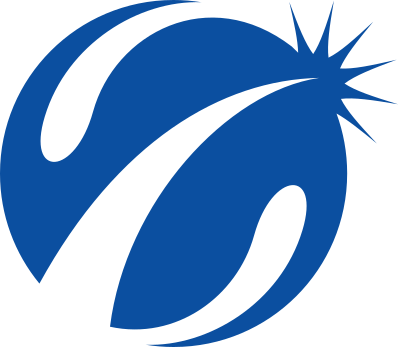

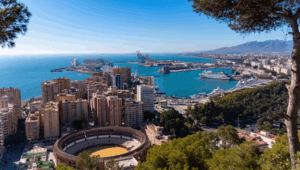
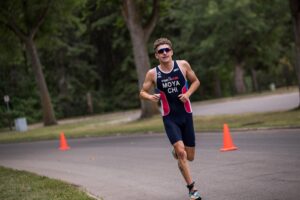
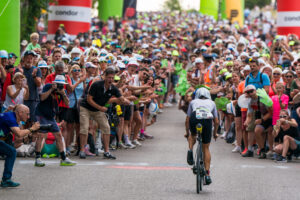

Start the discussion at forum.slowtwitch.com